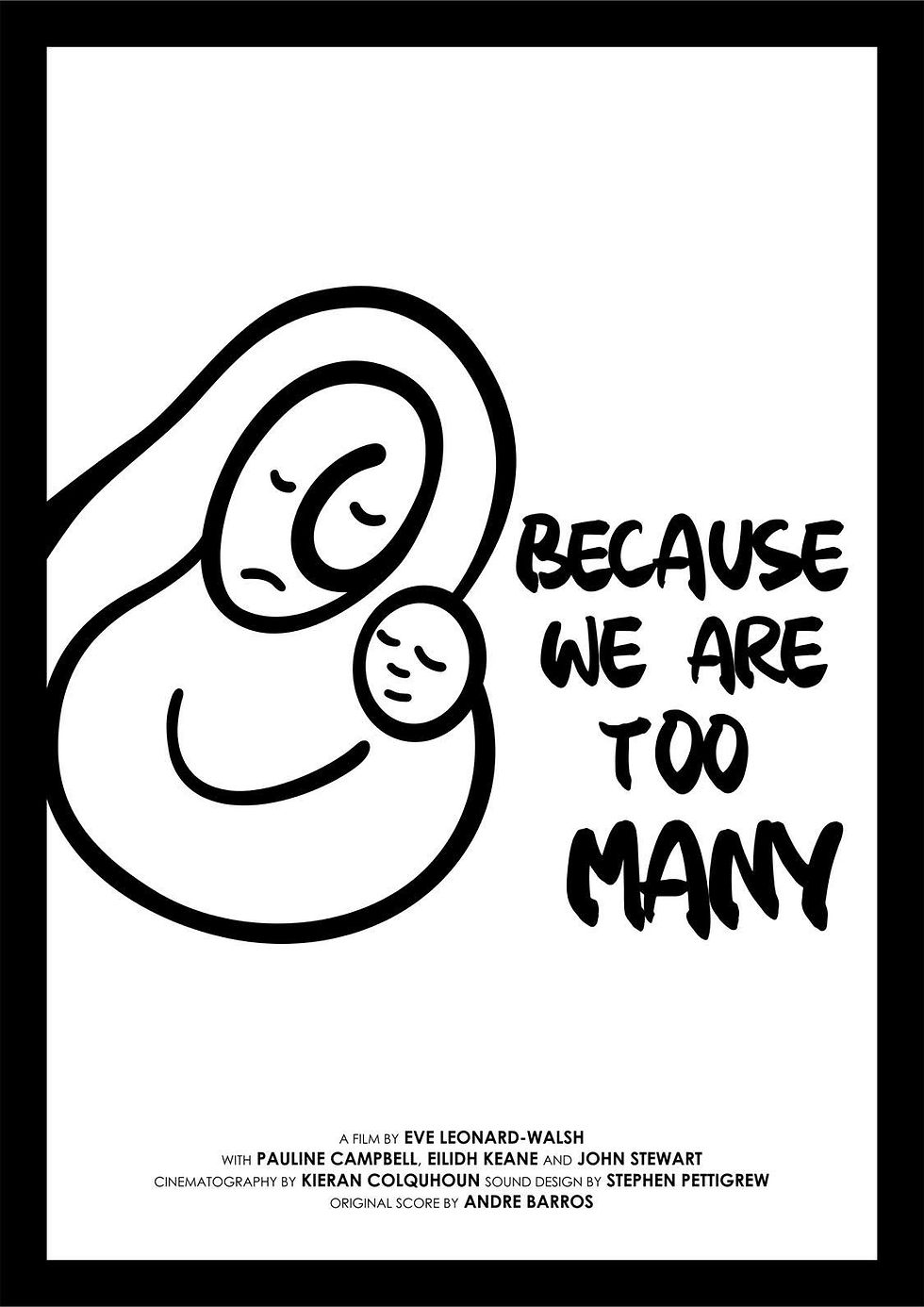Because We Are Too Many: An Interview with Eve Leonard-Walsh
- Aug 4, 2024
- 3 min read

Please tell us about the projects you worked on before making ‘Because We Are Too Many’. How did you start, and how did you learn to make films?
I started by making short documentaries on a camera which I stole from University J I taught myself to edit and decided late in life that I wanted to be a filmmaker. I was around 30. I discovered myself that my real love was fiction. However, I still love to watch documentaries!

Tell us about ‘Because We Are Too Many’. How do you describe it?
I would say the film is definitely unconventional; in that it is non-linear, and I have woven found footage and other people’s artwork (such as poetry) into the narrative. Filmmaking is a team effort for me as a director, not just regards the production team but in incorporating the local community into the process.
It’s not biographical; which I sometimes have difficulty in explaining to others, as myself and my son are in it. But at the same time, it is extremely personal. It’s themes are essentially about inter-generational trauma and loss of community, which I think are themes that translate well almost anywhere in the world.

Please tell us about your favorite filmmakers.
It’s difficult to choose but as a European Director I would say my strongest influences are in world cinema rather than Hollywood. I love the work of Tarkovsky and Kurosawa. In particular I would say Vittorio Di Sica and Federico Fellini because of their use of non-actors and their ability to incorporate local people as well as the local environment (they all shoot on location) into the structure of the film. This for me is a form of inclusivity. And something I aspire too. (although it is extremely difficult to pull off ha ha)
If you were given a good budget, what would be your ideal project?
A good budget means to me being able to pay people for their valuable time and effort and not to have to compromise regards; casting, time working with actors, locations and sets (I had to make my own sets on Because We Are Too Many)
A medium budget would be the ideal as a blockbuster budget seems to have restrictions placed on a director with their own creative involvement which would not suit me at all! I am a hands-on director!
Describe how you would ensure that production is on schedule. What steps would you take?
Although I always keep everything on schedule, the difficulty with having no budget is that it comes at a cost. Due to the time constrictions, I was not able to give the actors my full attention and work with them on developing their characters and performances. This is such an essential part of filmmaking.

What was the hardest part of making ‘Because We Are Too Many’?
There were so many challenges in this project it’s difficult to choose! Apart from having so many roles (producer, director, locations, logistics, costume) I was forced, due to having no budget, to film in sections over a 2-year period. Which was emotionally very draining. And my son grew a foot taller!
Apart from the extreme difficulties of making the film. I had not taken into account that I was myself processing my sons Autism Diagnosis. This made it emotionally and intellectually very difficult, but I am glad that I did it. Art to allowed me to express how I was feeling.
If possible, tell us about your next work. What plans do you have for your future work?
I have just completed work on my next 2 Feature lengths scripts. One is set in Glasgow in 1979 and is about the Punk movement. The other is an environmental film set in the Congo. I am excited about future collaborations internationally!



Comments